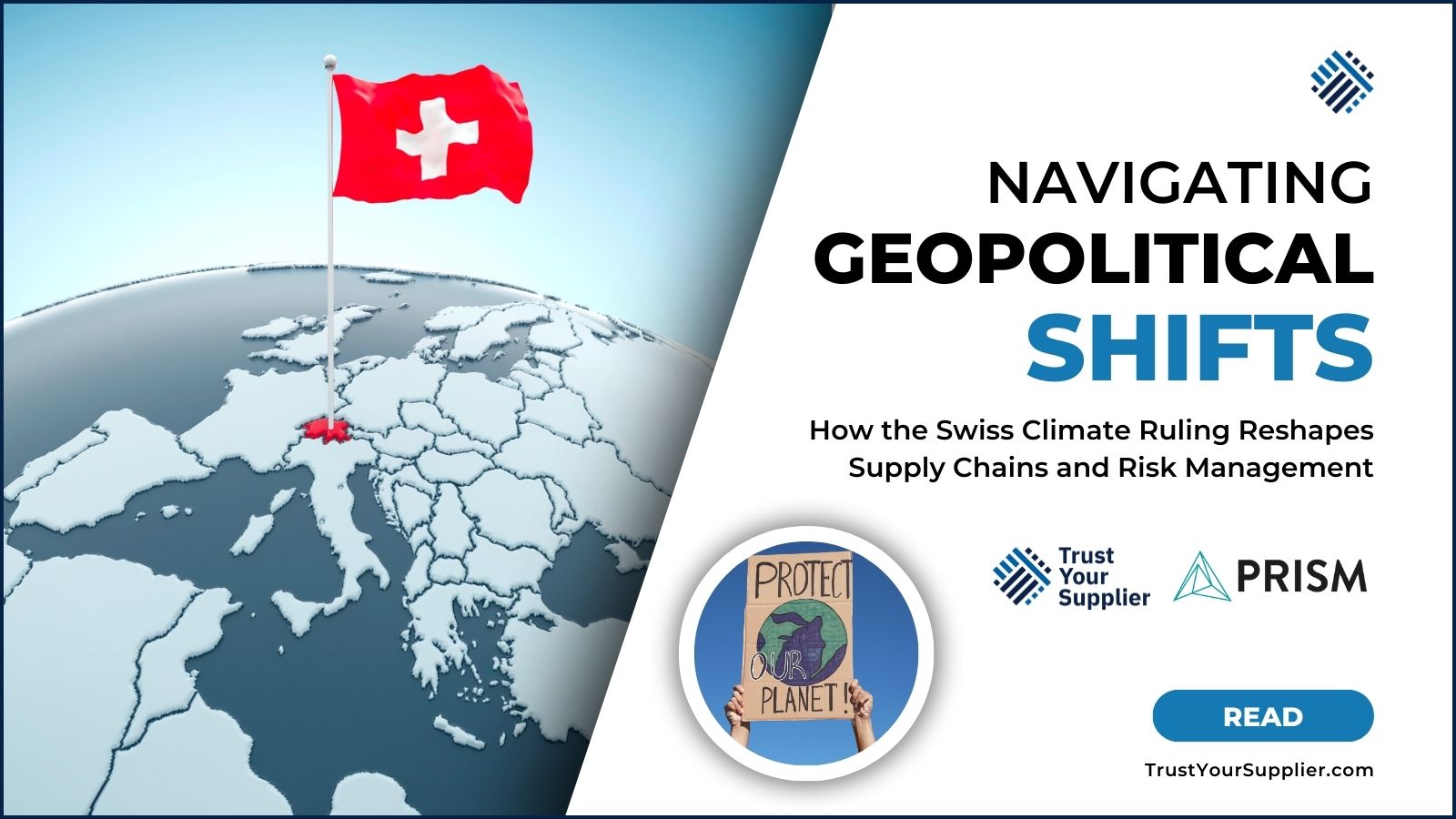How the Swiss Climate Ruling Reshapes Supply Chains and Risk Management
by Michelle Armstrong, TYS Global VP of Value Engineering and George Coe, Prism Cofounder & Partner
On April 9, 2024, a Swiss Court determined that the Swiss government had a legal obligation to combat climate change, based on European Human Rights Law. The case will have significant implications for ESG and supply chains.
This adds to a wave of climate litigation, against both countries and companies, but stands as a landmark ruling due to the use of human rights law broadly, and the European Convention on Human Rights (ECHR) specifically, for which a precedent is now set for all 46 countries that are signatories.
The implications go far beyond the direct ruling. TYS partner, PRISM, a geopolitical risk advisory firm, breaks down the issues for supply chain leaders to watch in three categories.
Risk of rapid regulatory expansion: the ruling implies that governments have an obligation to take appropriate measures to meet their stated climate goals. Current policy in almost every country comes far short of stated climate goals, such as the Net Zero by 2050 targets set in most Western economies. Legal obligations to put in place policies that match stated goals would mean transformative new climate regulations that would require far larger changes to supply chains than current law. This could range compliance burdens like greater disclosures, but the ruling implies effort aimed more directly at cutting climate risk, making it more likely that direct supply chain costs would be imposed by policies that require renewables investments, more ambitious emissions reductions, reduction of high emissions imports, and other more fundamental changes.
More countries: a range of other cases exist using human rights and other laws. Other countries, from France to Portugal to India and beyond must be watched for similar precedent-setting rulings that would expand the implications of this legal framework beyond Switzerland and the ECHR.
Direct corporate lawsuits: the ruling accelerates the impact of climate litigation from activists, which has also been aimed directly at companies. It can be expected to boost efforts to sue companies directly for failures on climate change, creating financial risk to companies and their suppliers, if more lawsuits are successful.
More broadly, the case could act as a catalyst for enhanced international cooperation. By framing climate action as a human rights imperative, it may lead to a concerted effort among nations to standardize environmental policies and regulatory frameworks, especially at a time when human rights and environmental goals are being pursued in tandem in supply chain regulations like the EU’s CSDDD.
The case itself is a crucial moment in the use of litigation by climate activists, bringing together years of work at the intersection of environmental advocacy, human rights, legal strategy, and political dynamics. If a precedent has truly been set that expands to more countries, we can expect a rapid rise in transformative climate action, rather than just stated goals, in the coming years.
Learn more about our TYS partner Prism.
Read more about the landmark Swiss case.
#TYS #Prism #ClimateLitigation #ESG #HumanRightsLaw #RegulatoryExpansion #CSDDD #Sustainability #GeopoliticalRisk


0 Comments